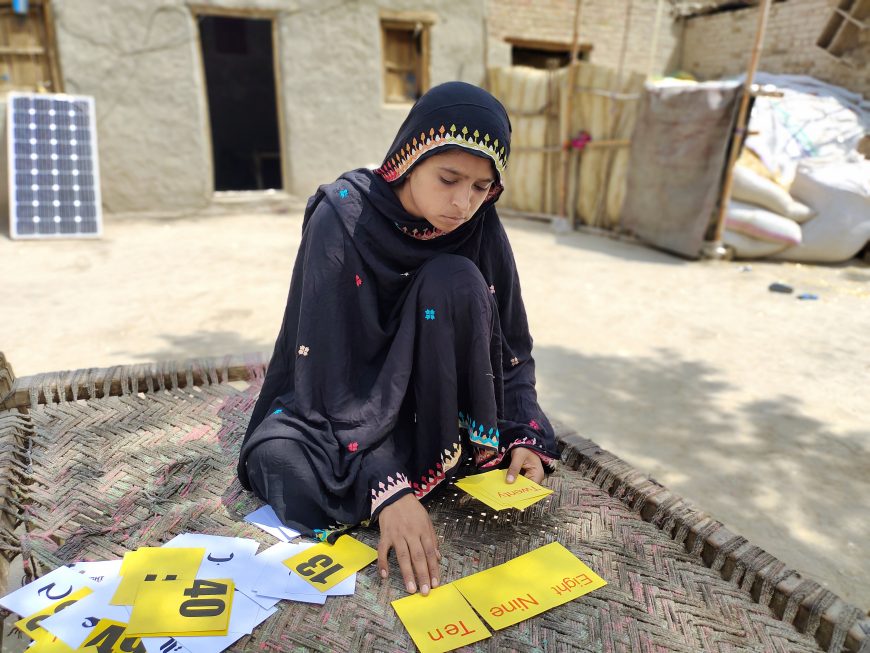Pakistan has the world’s second-highest number of out-of-school children with an estimated 22.8 million children aged 5-16 not attending school. Which represents 44 % of the total population in this age group. Disparities on access to education exist in this age group based on gender as well – 1 out of 2 children out of school are girls. The village of Hafiz Muhammad Bux Malik is located in a remote area of the Sindh province in Pakistan. It has a small population of farmers and daily wage earners with no government schools for girls.
The village of Hafiz Muhammad Bux Malik is located in a remote area of the Sindh province in Pakistan. It has a small population of farmers and daily wage earners with no government schools for girls, limiting their access to education.
To respond to this gap, ACTED is implementing a four-year education project. It aims to address access to education, the quality of teaching and learning, and social and cultural barriers within communities to girls’ education. The project is supported by the UK’s Foreign Commonwealth and Development Office through the Girls’ Education Challenge. The GEC is a 12-year commitment to reach the most marginalized girls in the world in some of the poorest countries, including girls who have disabilities or are at risk of being left behind, and ensure they receive a quality education.
Supporting Sana’s education in remote regions in Pakistan
Sana[1] is an 18 year old girl living in Hafiz Muhammad Bux Malik. Sana had never been to school. She lives with her father, mother and two brothers. Her father worked as a teacher at a nearby government boys’ school which both of her brothers attend. However, the area does not have a school for girls.
Despite her eagerness to study, Sana’s parents did not allow her to travel to another village to attend school as they felt the risks to her safety were too great. They were also worried about the social backlash of sending their daughter to school at an age that is considered appropriate for marriage in their community. ACTED’s community mobilisers visited her home to tell them about a Learning Center opening soon for girls in their village. However, Sana’s parents were still worried: What if she is attacked by dogs on the way there? Who will ensure she is safe at the center? Will she risk marriage proposals if she starts going to school now? These questions arose from the deep-rooted notions where the value of girls’ access to education is not fully understood.
[1] Name has been changed to protect privacy.

The team and community mobilisers worked with the parents to reassure them about the security measures taken to ensure the safety of all girls who attend the Centre. They also discussed the importance of education for girls and boys, in order to lead a meaningful and fulfilling life.
Sana was able to enroll in the eight-month Literacy and Numeracy Course at the Centre which focuses on providing basic literacy and numeracy skills to girls aged between 14 and 19 years old. Being at the Centre and being able to learn has changed Sana’s view of herself and her world.
For the first time, I can now write my name and tell the time from the clock. I never thought that my parents would rely on me and take me along for grocery trips but it comes as a happy surprise
She says that she became more confident through her education. When she accompanies her parents or siblings to the market, she can read and check the prices. One day she caught a shopkeeper quoting a higher price while on a shopping trip with her father and brother. This left her family thoroughly impressed with her newly gained skills.